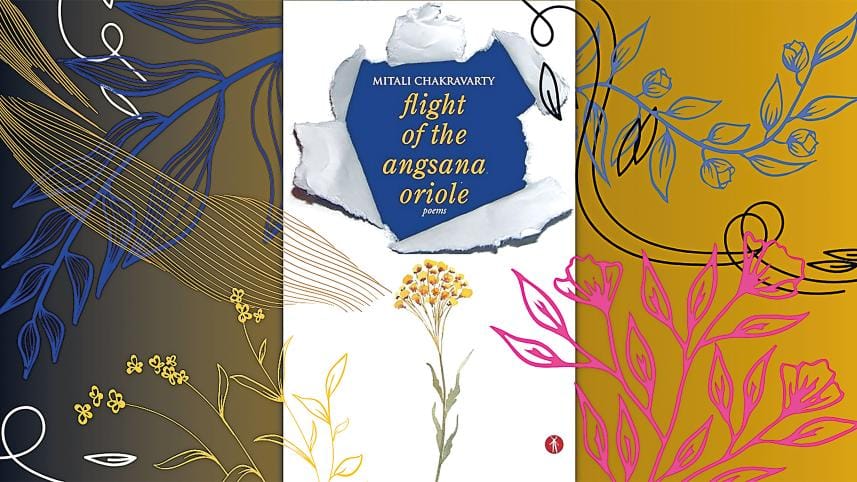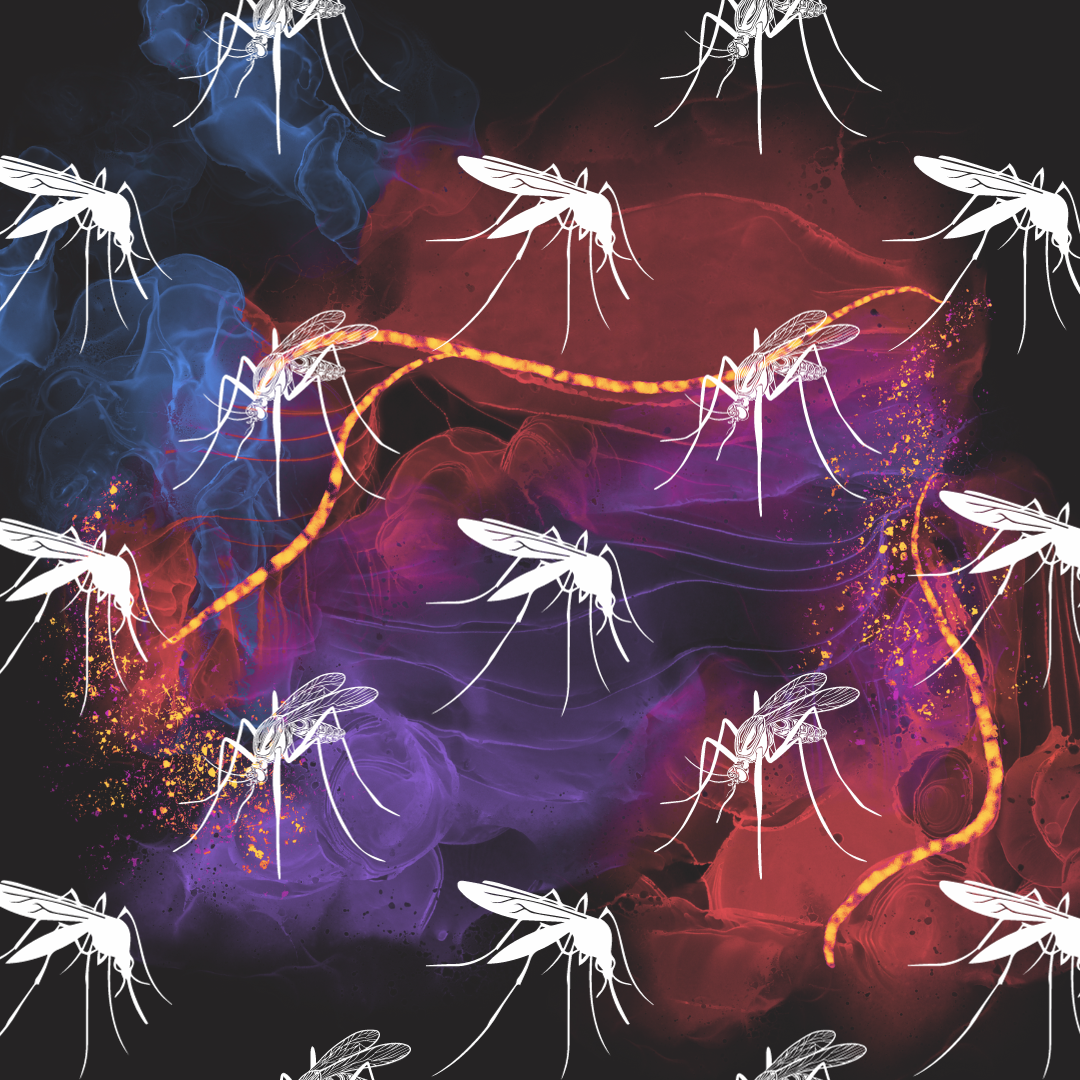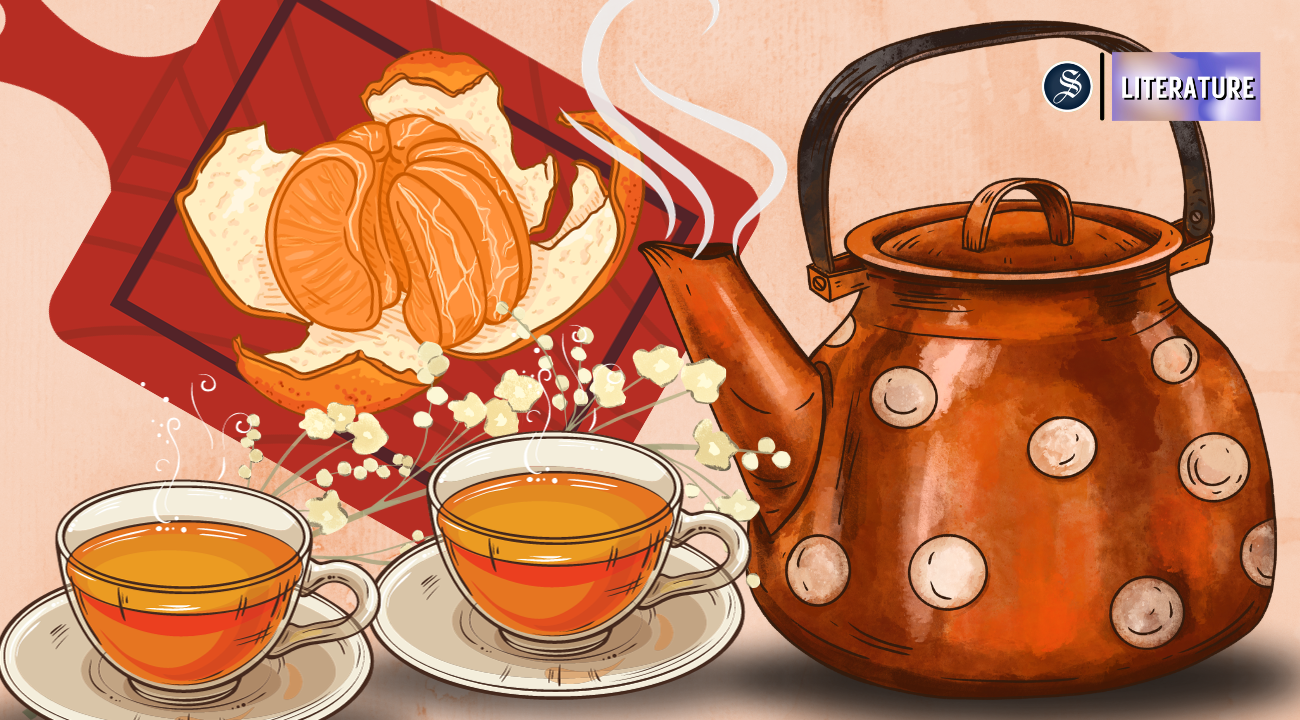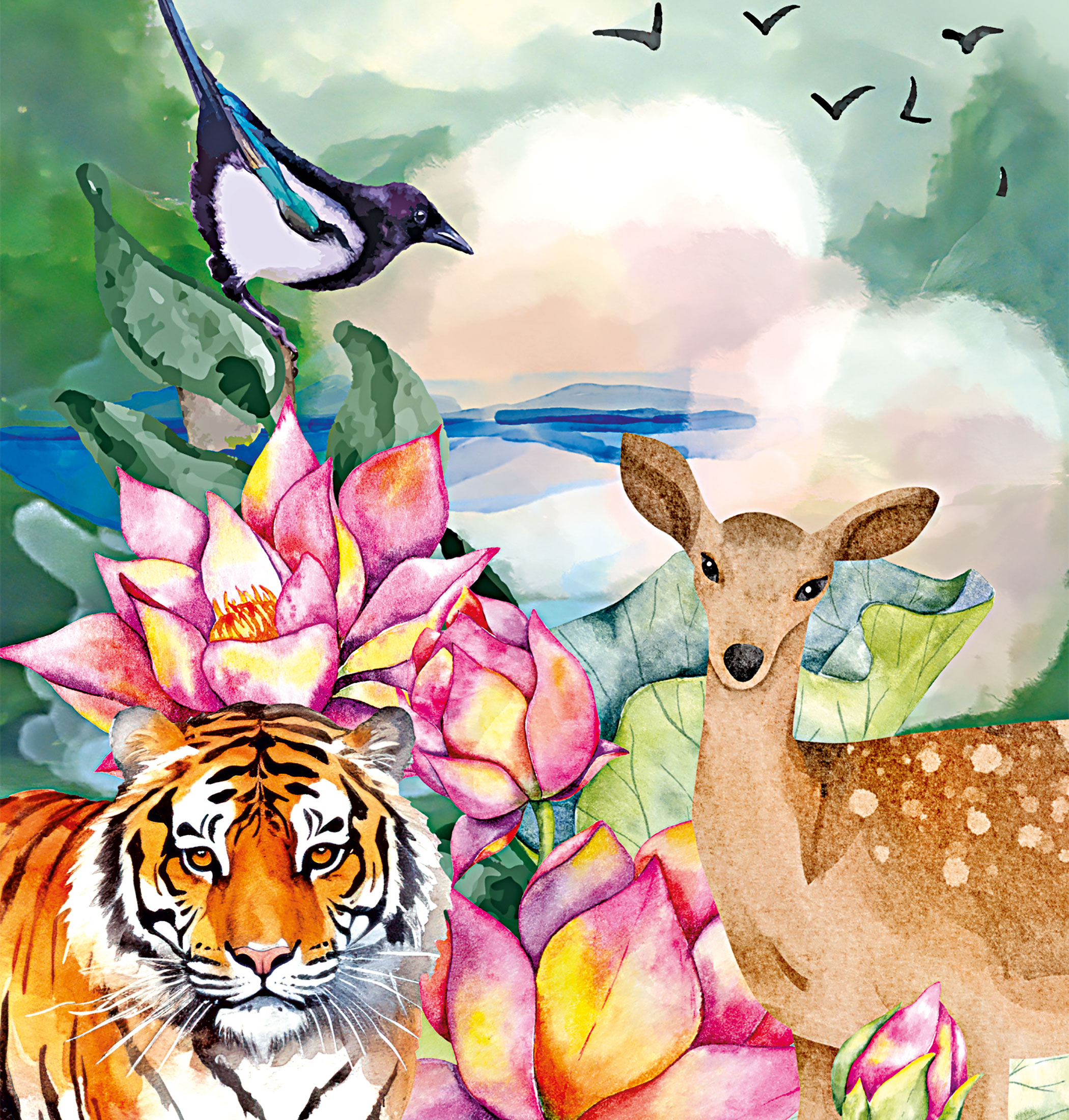ON THE WINGS OF POETRY: Flight of the Angsana Oriole

Last week it flew in, landing on my doorstep, and flapped open its wings released from its bubble wrapped cage. As the delivery man from Amazon Italy drove away, I regarded the poetry book in my hand.
The world of the Oriole in the title beckoned as I sat down with the slim volume on my terrace, surrounded not by exotic Angsana trees but my local Roman pines rustling with wood pigeons, the 'colombaccio'. However, as soon as I read the first few poems, the differences of landscapes, or of flora and fauna, melted as I was lifted on the wings of poetry across a universal sky to the world of common human experiences and emotions.
From the very first poem, I was drawn into a world made unique by certain images and metaphors, which, despite their specificity, led to a shared and borderless universe. And I use the word 'borderless' with intention, to talk about the poet herself, before discussing her poetry.
Mitali Chakravarty, apart from her work as an Indian born, Singapore based founder-editor of the distinguished online journal Borderless, has had reams of prose and poetry published in both print and online journals, and anthologies. But the poetry book in my hands is her debut collection of poems gathered in one volume.
Comprising 72 poems, Flight of the Angsana Oriole spreads its wings across a wide territory. In the words of the writer herself: "My poems are sometimes of the past as I knew it, and sometimes in quest of a future, or a dream that I hope will go to create a more hopeful future than the world presents to us currently. There are personal poems, like the ones mourning the passing of my parents…poems that talk of my journey through life, the world as I see it…poems that weep and poems that laugh…"
The poems, whether they are personal or polemical in their nature, intimate or global in their reach, reflective or urgent in their tone, are all consistently propelled by a depth of emotional honesty and aesthetic acuity in the use of language.
At the start of the book, in the Introduction, we encounter an arresting verb created out of the noun 'magic,' and we know we are entering a special space where Angsana-Orioles are "magicked out of the unseen leaves" making us wonder, as in the last line of the first poem, "who sings—the birds, the blooms or the skies?"
At first, I read for the pleasure of the language, and mark the words or phrases that leap at me in visual, verbal or musical delight: "I like to soar with/ birds to sing of/ sunrises that lilt./ I like trees, the breeze/ rushing through/ filigree leaves" ("A Human"); "young tendrils fruiting to/ tall trees ("Spring of Hope"); "… the/ broken edges of words/ that distress" ("I want to write a Love Song"); "a pine with its waterfall/ hairdo" ("When Death does us part"); "a precipice where sound/ loses its call" ("Reaching for the Universe"); or "Kali! With flame-flowing mane" ("Womb of a Volcano").
I enjoyed most of the poems, and found each compelling for different reasons. Given my own proclivity for the poetry of quiet reflection, the poems I loved best are the personal and self-exploratory ones of loss and regeneration. These were approximately half the total number of poems, and came early in the book.
But even in the rest, the passion and conviction that fueled the poems dealing with global issues, like environment and climate change, or that spoke out against social and political ills, like crimes against women or economic and international conflicts, were striking to me and not just for the point they made, or the emotions they churned, but for the variety of poetic techniques and prosodic skills.
For example, in the powerful poem "Shivratri", which is an exhortation against the followers of Shiva, or men who use religion and power and resort to violence and chauvinism to gain ascendancy in society in general, there is a stanza that deals specifically with crimes against women. This is set apart by a series of short lines that are like a litany of the way females are victimised by a patriarchal society: "She is the wife beaten…/She is the mother mourning…/She is the daughter pining…/She is the woman raped…." Then suddenly the pattern is broken by two long lines that follow; one continues to list the crimes against women, and the next one shows how other women are complicit in victimising their fellow females. These two lines resonate with the clangour of poetic devices like assonance and consonance "…She is the woman/ burnt for dowry, torn in lust, reduced to/ ashes and dust. Women who keep within/ 'bounds' denounce Uma for her protest."
Equally potent are the various uses of repetition, for example, in a line in the poem "Unrest" to demonstrate the continuous shower of petals falling till the branches are denuded: "And then it rained flowers,/ then it rained flowers/ emptying the tree."
In the poem "Wanderings" the repetition of words has a different, more meditative and lulling effect, creating the sense of a peaceful natural environment: "Sometimes, /Sometimes it is just nice to sit and watch…/ watch the clouds flit by –/ …Angsana leaves whisper,/ whisper to the orioles that flit…/ Butterflies that among flowers weave,/ weave intricate patterns…" This sets up the contrast to the clipped words and sounds of hard 'Ts', 'D's' and 'K's' in the last stanza about the threat of being overpowered by the world of compassionless humans designing a future of cold technology that will not address the marginalised. "Can it silence the machinations/ of humans who try to plan a future, / to recreate, procreate and kill, create/ Amortals, who will never die? /…while poverty-torn die diseased,/ unattended, outside the tech-savvy hospital."
I think, instead of quoting chunks from the book, I will leave readers to get their own paperback Angsana Oriole and follow its journey through both the poetry of public spheres of human existence, and the personal one of self discovery, which is not just the poet's but also ours:
"… I am the migrant waiting in/ a queue, the climate refugee,/ a Rohingya with no home, a gipsy,/ a butterfly, a wisp of smoke,/ a drop in the ocean. I am a part/ of the history, a part of the mystery/ that made life flow. I am the universe, a/ dot, a speck of dust, a glow, a human./ I am because you are and the Universe is" (extract from "Being").
Italics have been used for emphasis by the reviewer.
Neeman Sobhan is an Italy based Bangladeshi fiction writer, poet, columnist, till recently teaching English and Bengali at the University of Rome. Among her publications: an anthology of columns, An Abiding City: Ruminations from Rome; a fiction collection, Piazza Bangladesh; and a poetry collection, Calligraphy of Wet Leaves.



 For all latest news, follow The Daily Star's Google News channel.
For all latest news, follow The Daily Star's Google News channel. 


Comments